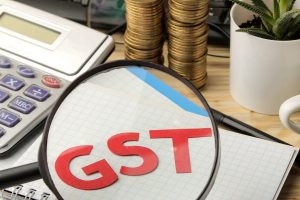
*A company showing manpower supply from Gujarat to Bihar for services, instead of supply of goods, to avoid generating e-way bills
*Aadhaar of businesses getting linked to mobile numbers of random individuals, who were then getting all OTPs
*Multiple registrations originating from the same premise, with fake documents produced for registration
*Several southern states highlighting an increased presence of businesses having registrations in north-eastern states, which turned out to be misleading
These are some instances of frauds which have come under the radar of tax authorities under the Goods and Services Tax (GST) regime, prompting them to initiate a special drive against registration-linked frauds in 2023-24 after discussions having taken place at the top level in the government. With no major GST rate tweaks expected before the general elections next year, tax authorities have identified registration-linked frauds as one of the key focus areas for tighter scrutiny in the financial year 2023-24 to bolster revenue collections.
State-wise data for 30-32 sectors is being analysed for such instances of tax evasion linked specifically to registrations, officials said.
There are also concerns among many state tax authorities about revenue leakages through such frauds and evasion cases, especially after the GST compensation regime came to an end in June last year. Reason: monthly gross GST revenues have averaged at Rs 1.5 lakh crore in financial year 2022-23, remaining range-bound between Rs 1.4-1.6 lakh crore (the highest level was seen at Rs 1.67 lakh crore in April 2022). Around 3-4 per cent of the monthly gross GST collections were estimated to have been on account of the rate revisions undertaken in July, as per internal finance ministry estimates. The gains in GST revenue because of last year’s rate changes are expected to continue till the first quarter of this fiscal until the base effect normalises in July.
In the proposed anti-evasion drive, tax authorities are mainly going to focus on parameter-based checks, verification and cleaning of the database of taxpayers, one of the officials said.
“Registration-related frauds are being closely monitored. State-wise data will be analysed.
Discussions have happened at top level in the government on this and data will be shared with both state and central GST authorities for necessary action to be taken at their end. Cleaning up of the database is being done, it’s an ongoing exercise,” a senior government official said.
GST authorities across states are learnt to have been directed to compile action-taken reports on such cases and the status of such ongoing investigations. The issue is likely to be then taken up for discussion in the next GST Council meeting, an official said.
“Tax credit especially on account of Integrated GST (IGST) is circulating in the entire country and with a divided administration between officials from states and Centre, it is a challenge. This model requires very tight administration,” the official said.
Government officials are working on developing modules for a tax officers’ mobile application, which will then be rolled out across states to ensure post-registration verification.
“Two modules have been readied and testing has happened with Uttar Pradesh. State-wise rollout will be done. Registration module will be prioritised which will focus on post-registration verification, premise verification and uploading of photo from the registered premises,” the official said.
Some instances have been pointed out by a few southern states such as Tamil Nadu, Andhra Pradesh about GST registrations showing up in north-eastern states like Sikkim. “Since it is a destination-based tax, the final place of consumption is shown there. Say, if the fraud registration has been taken in Sikkim, it is tough to ascertain whether it’s there or not. Departmental strength is less there so the verification process becomes tough,” one of the officials said.
In some cases, businesses are also showing engagement in services rather than goods so that they do not have to generate e-way bills, which are mandatory for inter-state transportation of goods valued over Rs 50,000, officials said.
The GST authorities have been undertaking action against entities for availing and passing on input tax credit based on fake invoices. As per Finance Ministry data, 57,111 cases have been registered for GST evasion since the July 2017 rollout till February 2023.
During 2017-18 to February 2023, the highest amount of GST evasion was detected in Maharashtra (Rs 60,059 crore), followed by Karnataka (Rs 40,507 crore), Gujarat (Rs 26,156 crore) and Delhi (Rs 24,217 crore). The recovered amount for Maharashtra was Rs 26,066 crore, followed by Rs 9,473 crore for Karnataka, Rs 8,009 crore for Gujarat and Rs 7,057 crore for Delhi.
Also, 7,628 cases were booked and 742 persons were arrested for fake invoices under GST during November 9, 2020 to February 7, 2023. An amount of Rs 58,949 crore was detected in these fake input tax credit cases under GST, out of which Rs 3,377 crore was recovered.
The government has been taking action against evasion through the GST returns filing system such as restricting filing of GSTR-1 (the monthly/quarterly sales return), if a taxpayer fails to furnish GSTR-3B (summary return showing sales, input tax credit and tax payable) for the preceding tax period. The Directorate General of Analysis and Risk Management also prepares red-flag reports based on data analytics and AI-based tools for defaulting and risky taxpayers for discrepancies based on GST returns and e-way bills, which is shared with tax officials.
Source: The Indian Express
https://indianexpress.com/article/business/economy/gst-frauds-taxmen-on-anti-evasion-drive-as-collection-stays-range-bound-8563771/


